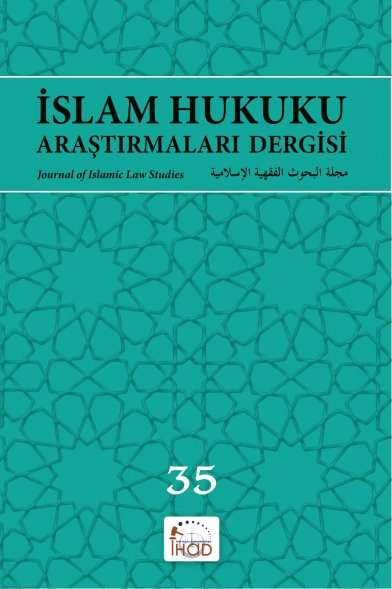17. Yüzyılda Nevâzil Türü Bir Mesele Olarak Tömbeki: İbrahim b. Ebî Seleme ve Pîrîzâde İbrâhim’in Tömbeki Risâleleri – Neşir ve Tahlil –
XVI. yüzyılda dünya genelinde yayılan tütün, bu tarihlerden itibaren fıkıh âlimlerini meşgul etmiş nevâzil türü bir meseledir. Tütün içilmesinin hükmü, tömbeki suyunun necis olup olmaması gibi hususlarda yapılan tartışmalar, bu alanda birçok risâlenin yazılmasına neden olmuştur. Bu çalışmanın konusunu teşkil eden iki risâle de tömbeki suyunun ve tömbeki içmenin hükmüyle alakalıdır. İbrâhim b. Ebî Seleme risâlesinde, konuyu Hanefî mezhebi çerçevesinde çözmeyi hedeflerken, Pîrîzâde ise öncelikle İbn Ebî Seleme’nin söz konusu risâlesinde yapmış olduğu hataları, yine onun mezhebe uyarak çözdüğünü iddia ettiği hususlarda mezhebe aykırı ya da mezhep usûlüne uygun olmayan görüşlerini düzeltmeyi hedeflemiştir. Her iki risâle karşılaştırıldığında, söz konusu dönemde mezhebe bağlılığın kuru bir taklidden öte, yeni ortaya çıkan meseleleri belli bir bakış açısıyla tutarlı bir şekilde ve mezhep içi yöntemlerle çözme gayesini güden bir anlam taşıdığı açık bir şekilde görülmektedir.
Anahtar Kelimeler:
Hanefî Mezhebi, Tütün, Tömbeki, Nargile, İbrâhim b. Ebî Seleme, Pîrîzâde İbrâhim, Nevâzilı.
Hookah as a New Matter in the 17th Century: Ibrāhim b. Abu Salamah and Pīrīzāde İbrāhim’s Hookah Manuscripts -Critical Edition and Analysis-
Tobacco, which spread throughout the world in the sixteenth century, has been a kind of humble issue that has occupied fiqh scholars since these dates. The discussions on the issues such as the provision of tobacco smoking and whether or not hookah water is forbidden have led to many writings in this area. The two manuscripts that are the subject of this study are related to the provision of hookah water and smoking hookah. In his study, while Ibrāhim b. Abu Salamah aimed to solve the issue in the Hanafi sect system, Pīrīzāde firstly aimed to detect the errors in the manuscript of Ibrāhim b. Abu Salamah and to determine and correct the implications that are contrary to the sect or not in accordance with the sect method. When comparing both manuscripts, it is clearly seen that adherence to sect in this period is more than a dry imitation and fanaticism, but has the purpose of solving emerging issues consistent with a certain perspective and by intra-sectarian methods.
Keywords:
Hanafi Sect, Tobacco, Tömbeki, Hookah, Ibrāhim b. Abu Salamah, Pīrīzāde İbrāhim, Nawāzil,
- ISSN: 1304-1045
- Yayın Aralığı: Yılda 2 Sayı
- Başlangıç: 2004
- Yayıncı: Gençleri Evlendirme ve Mehir Vakfı
Sayıdaki Diğer Makaleler
İslâm İbadetler Fıkhında Hayvanların Yaşama Hakları Bağlamında Kurban İbadeti
İslam İktisadında Bölüşüm Sisteminin Bir Aracı Olarak Zekâtın Rolü
Ahmad Fayez HERSH, Mahmut SAMAR, Meryem YILMAZ
İslam Hukukunda Zina Yapanlarin Öldürüldükleri Durumlar
Cemâleddin el-Konevî ve el-Gunye fi’l-Fetâvâ Adlı Eseri
Hırsızlık Âyetinde ‘El Kesme’nin ‘Güç Kesme ve Engelleme’ Şeklindeki Modern Yorumunun Analizi
